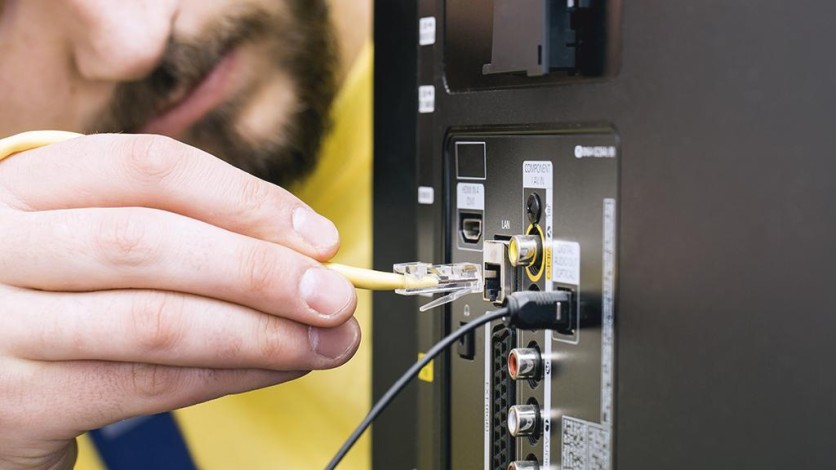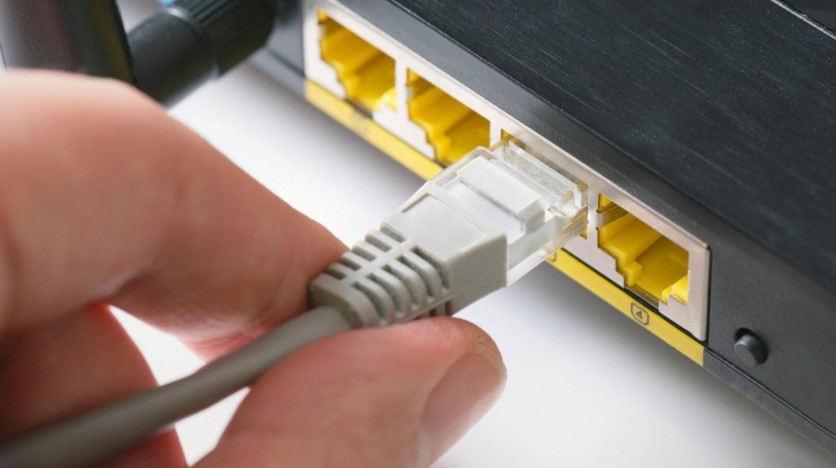
Samsung TVs are a popular choice among consumers due to their advanced features and high-quality displays. However, one common issue many users encounter is the inability to connect their Samsung TV to Wi-Fi. This can be frustrating, especially if you use your TV for streaming or accessing online content. In this article, we will discuss nine possible reasons why your Samsung TV may not be connecting to Wi-Fi, along with some troubleshooting tips to help you fix TV problems.
1. Poor Wi-Fi Signal
A weak Wi-Fi signal is one of the most common reasons why your Samsung TV may not be able to connect to Wi-Fi. If your TV is located too far away from your Wi-Fi router, or obstacles such as walls or furniture block the signal, this could be the problem. Make sure that your TV is within range of your Wi-Fi router and that there are no obstructions in the way. You could also try moving your router to a more central location in your home.
2. Incorrect Wi-Fi Password
Double-check that you have entered the correct Wi-Fi password on your Samsung TV. Sometimes, a simple typo can cause connection issues. If you are unsure what your Wi-Fi password is, you can verify it by connecting another device to your Wi-Fi network and checking the password settings.
3. Outdated TV Firmware
An outdated firmware version on your Samsung TV can also cause connection issues. Check for any available software updates for your TV and install them. You can usually do this by going to your TV's settings menu and selecting "Software Update." If there is an update available, follow the on-screen instructions to download and install it. Updating your TV's firmware can also improve its performance and fix other issues.
4. Router Firmware Update
Just like your Samsung TV firmware, your router firmware can also become outdated and cause connectivity issues. Firmware updates can improve the router's performance and fix bugs, which can help your TV connect to Wi-Fi more easily. Check for any available updates for your router and install them. You can usually find firmware updates in your router's settings menu or by visiting the manufacturer's website. Keeping your router firmware updated can also improve your overall network security.
5. Network Interference
If you have other wireless devices connected to your network, they could be causing interference that affects your Samsung TV's connectivity. This interference can be caused by devices such as smartphones, laptops, and tablets. Try turning off other wireless devices to see if that resolves the issue. If you can't turn off all devices, consider moving your Samsung TV and router away from other wireless devices that could be causing interference, such as microwaves and cordless phones. Changing the wireless channel on your router can also help reduce interference.

6. IP Conflict
An IP conflict can occur when two devices on your network have the same IP address, which can cause connectivity issues for your Samsung TV. Resetting your router can help resolve this issue. To reset your router, find the reset button on the back of the router and press and hold it for about 30 seconds. This will erase all custom settings and restore the router to its default settings. Alternatively, you can assign a static IP address to your Samsung TV to prevent conflicts. To do this, go to your TV's network settings and choose "Manual IP Settings." Enter a unique IP address that is not being used by any other devices on your network.
7. Network Security Settings
Ensure that your Samsung TV is compatible with your network's security settings. If your TV does not support your network's security protocol, you may need to change the security settings on your network. This can involve changing the security type (e.g. WEP, WPA, WPA2) or password on your router. Be sure to choose a strong password that is not easily guessable. It's also a good idea to enable additional security features such as MAC filtering or disabling SSID broadcast to prevent unauthorized access to your network.
8. DNS Server Issues
DNS server issues can cause connectivity problems for your Samsung TV. A DNS server translates domain names (e.g. www.google.com) into IP addresses that your device can understand. If the DNS server settings on your TV are incorrect or the server itself is experiencing problems, your TV may not be able to connect to Wi-Fi. Try changing the DNS server settings on your Samsung TV to see if that resolves the issue. You can use Google's public DNS (8.8.8.8 and 8.8.4.4) or your ISP's DNS server.
9. Faulty Wi-Fi Module
If none of the above solutions work, your Samsung TV's Wi-Fi module may be faulty. This module is responsible for connecting your TV to Wi-Fi and if it's not functioning properly, your TV may not be able to connect to Wi-Fi. In this case, you may need to contact Samsung customer support or a professional repair service to fix the issue. Be sure to provide as much detail as possible about the problem and any troubleshooting steps you have already taken. Depending on the age of your TV, it may be more cost-effective to purchase a new TV instead of repairing the Wi-Fi module.
How To Improve the Wi-Fi Signal Strength for Samsung TVs?
There are several ways to improve connectivity:
Relocate your Wi-Fi router: If your router is located far away from your TV or is obstructed by walls or furniture, try moving it closer to your TV. This can improve the Wi-Fi signal strength and overall connectivity.
Use a Wi-Fi range extender: If moving your router is not an option, consider using a Wi-Fi range extender. This device can amplify your Wi-Fi signal and extend the coverage to areas of your home that may be out of range.
Update your router's firmware: Check for any available firmware updates for your router and install them. This can improve the router's performance and increase Wi-Fi signal strength.
Use a wired connection: If possible, connect your Samsung TV directly to your router using an Ethernet cable. This can provide a more stable and faster connection compared to a wireless connection.
Limit interference: Other wireless devices in your home can interfere with your Wi-Fi signal, causing connectivity issues. Try turning off other wireless devices or reducing their usage to see if that improves the Wi-Fi signal strength for your Samsung TV.
By following these steps, you can improve the Wi-Fi signal strength for your Samsung TV and ensure a stable and reliable connection.
In Conclusion
The connectivity issues with Samsung TVs can be frustrating, but there are several solutions to improve the Wi-Fi signal strength and resolve connectivity issues. Ensure that your TV is within range of your router, check for firmware updates, and consider using a range extender or a wired connection. Additionally, check for network interference, IP conflicts, security settings, and DNS server issues that can affect your Samsung TV's connectivity. If none of these solutions work, your Samsung TV's Wi-Fi module may be faulty, and you may need to contact Samsung customer support or a professional repair service for further assistance.
About the Author

Christine Tomas is a tech expert, consultant, and aspiring writer. She writes for different news portals and thematic blogs for tech experts that helps her stay at the heart of programming, technology news.
ⓒ 2025 TECHTIMES.com All rights reserved. Do not reproduce without permission.




